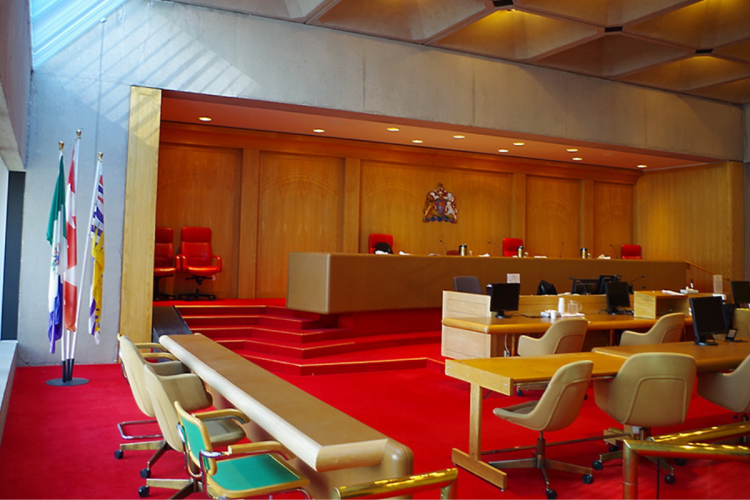Greenwashing update: Competition Bureau releases final environmental claims guidelines

As discussed in our previous articles, new “anti-greenwashing provisions” in the federal Competition Act (the “Act”) came into force in June of 2024.
Canadian businesses were provided with some important insights into the Competition Bureau’s (the “Bureau”) proposed approach to enforcing environmental claims under the anti-greenwashing provisions when the Bureau published a set of draft environmental claims guidelines in December of 2024 (the “Draft Guidelines”).
Following the conclusion of a two-month consultation period in February of 2025, during which several businesses communicated their views and concerns regarding the Draft Guidelines, the Bureau released its final guidelines for environmental claims on June 5, 2025 (the “Final Guidelines”).
This article briefly summarizes the revisions contained in the Final Guidelines. While they will not carry the force of law, the Final Guidelines will be a relevant consideration in any proceedings that are litigated before the courts with respect to environmental claims.
Refresher on the draft guidelines
While we would encourage readers to review our previous article regarding the Draft Guidelines, some of the Bureau’s key points from the Draft Guidelines are outlined below:
Internationally recognized methodology
The Bureau advised that standards developed by Canadian governments and standards “recognized in two or more countries,” but not necessarily “recognized by the governments of two or more countries,” will be acceptable.
Net-zero methodologies
The Bureau confirmed the availability of “many” different standards that can help businesses learn how to meet the challenge of reaching net-zero.
Testing and substantiation
An advertiser must conduct their own adequate and proper “testing” before making a performance claim regarding a product or service, whereas claims about a business or its activities require adequate and proper “substantiation.” While substantiation does not necessarily require lab or field testing, businesses will need to select a suitable internationally recognized methodology, having regard to all the relevant circumstances.
Third-party verification
The Bureau affirmed that third-party verification of environmental claims will only be required where the internationally recognized methodology being relied upon as a means of adequate and proper substantiation requires third-party verification.
Revisions to the draft guidelines
The Final Guidelines are generally reflective of the approach to environmental claims proposed in the Draft Guidelines. However, the Bureau has incorporated a handful of subtle revisions:
Internationally recognized methodology
The Bureau has provided further clarification with respect to the concept of “internationally recognized methodology.” The Final Guidelines contain various illustrative examples which indicate that standards such as the GHG Protocol for Project Accounting and standards published by the International Organization for Standardization (i.e. “ISO” standards) would likely be considered an “internationally recognized methodology.”
Foreign businesses
The Bureau has affirmed in the Final Guidelines that foreign businesses marketing in Canada must comply with the misleading advertising and deceptive marketing provisions of the Act, which includes the anti-greenwashing provisions.
Securities disclosures
Finally, the Final Guidelines provide that provincial and territorial governments are responsible for the regulation of securities, which may include developing frameworks for the voluntary and mandatory disclosure of environmental information to current and prospective securities investors. Notably, the Bureau has stated that it is not concerned with these representations, but cautions that if a business reuses any such environmental claims for the purpose of promoting a product or business interest outside of the sale of securities, the Bureau may apply the Act as appropriate.
Takeaways
The most significant change in the Final Guidelines is the Bureau’s indication that environmental claims contained in mandatory or voluntary securities disclosures (i.e. environmental, social and governance (ESG) reporting) will be unlikely to result in enforcement action, unless such claims are used to promote a product or business interest outside of the sale of securities. That being said, we would caution businesses to take this commentary from the Bureau with a grain of salt.
While the Bureau may not be concerned with securities disclosures, the impending expansion of private rights of action under the Act on June 20, 2025, will permit private litigants to seek leave to commence actions against a business that is alleged to have made false or misleading environmental claims to the public for the purpose of promoting a product, service, business or business interest. As there is a strong argument that securities disclosures constitute the promotion of a business interest, there is considerable risk that private litigants may rely on a business’ securities disclosures as the basis for commencing an action.
Regardless of the fact that private litigants will not have access to the new “quasi class-action” remedies that come into force on June 20, 2025, in connection with alleged violations of the anti-greenwashing provisions, businesses could still be ordered to pay significant administrative monetary penalties if the private litigant establishes that the business’ environmental claims were false or misleading in a material sense.
If you or your business have any questions regarding compliance with Canadian competition laws, please do not hesitate to contact a member of our competition law team or your existing MLT Aikins contact.
Note: This article is of a general nature only and is not exhaustive of all possible legal rights or remedies. In addition, laws may change over time and should be interpreted only in the context of particular circumstances such that these materials are not intended to be relied upon or taken as legal advice or opinion. Readers should consult a legal professional for specific advice in any particular situation.





